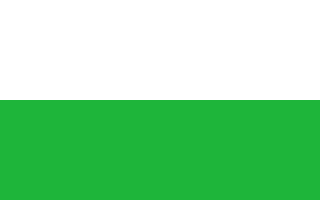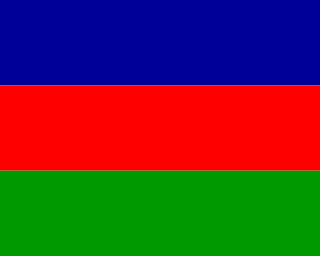
Burundi is one of the few countries in Africa, along with its closely linked neighbour Rwanda among others, to be a direct territorial continuation of a pre-colonial era African state.

The Front for Democracy in Burundi is a Hutu progressive political party in Burundi.

Melchior Ndadaye was a Burundian intellectual and politician. He was the first democratically elected and first Hutu president of Burundi after winning the landmark 1993 election. Though he moved to attempt to smooth the country's bitter ethnic divide, his reforms antagonised soldiers in the Tutsi-dominated army, and he was assassinated amidst a failed military coup in October 1993, after only three months in office. His assassination sparked an array of brutal tit-for-tat massacres between the Tutsi and Hutu ethnic groups, and ultimately sparked the decade-long Burundi Civil War.

The Union for National Progress is a nationalist political party in Burundi, receiving most of its support from members of the Tutsi ethnic group. It is celebrated for its role in gaining Burundian independence.

The National Council for the Defense of Democracy–Forces for the Defense of Democracy is the current ruling party in Burundi. During the Burundian Civil War, the CNDD-FDD was the most significant rebel group active and became a major political party in Burundi. In March 2012, Pascal Nyabenda was elected as President of CNDD-FDD. Then on 20 August 2016, General Evariste Ndayishimiye was, in the extraordinary congress that took place in Gitega, elected as the Secretary General of the Party.

Elections in Burundi gives information on election and election results in Burundi.

Presidential elections were held in Burundi on 1 June 1993 following the approval of a new constitution in a referendum the previous year. They were the first multi-party elections for the presidency, the only previous elections in 1984 having been held at a time when the country was a one-party state. This election was a watershed for Burundi, representing the end of a military backed Tutsi state, and the birth of democracy.

Parliamentary elections were held in Burundi on 29 June 1993. They were the first multi-party parliamentary elections since 1965, and followed the approval of a new constitution in a referendum in 1992. The result was a victory for the Front for Democracy in Burundi, which won 65 of the 81 seats.

The National Assembly is the lower chamber of Parliament in Burundi. It consists of 100 directly elected members and between 18 and 21 co-opted members who serve five-year terms.

The position of Vice-President of the Republic of Burundi was created in June 1998, when a transitional constitution went into effect. It replaced the post of Prime Minister.

The Party for National Recovery is a minor political party in Burundi. It was founded in May 1994 by the former president Jean-Baptiste Bagaza. Bagaza, an ethnic Tutsi, had established a military dictatorship in Burundi from 1976 until his deposition in 1987, after which he lived in exile. He was allowed to return to the country during its democratization under Pierre Buyoya after 1992.

The Rally for the People of Burundi is a political party in Burundi. It was headed by Ernest Kabushemeye, until his assassination in 1995, since when Balthazar Bigirimana has been party leader.

In 2007 the Government of Burundi consisted of a 20-member Council of Ministers appointed by the President. The Council of Ministers, together with the President and Vice-Presidents, forms the executive branch of government in the country.

The National Council for the Defense of Democracy is a political party in Burundi.

Parliamentary elections were held in Burundi on 4 July 2005. The result was a victory for the National Council for the Defense of Democracy – Forces for the Defense of Democracy (CNDD–FDD), which won 64 of the 118 seats in the National Assembly

Parliamentary elections were held in Burundi on 23 July 2010. The opposition parties boycotted the election after also boycotting the presidential election.

Presidential elections were held in Burundi on 28 June 2010. As a result of withdrawals and alleged fraud and intimidation, incumbent President Pierre Nkurunziza was the only candidate.

Parliamentary elections were held in Burundi on 29 June 2015. The vote had been initially set for 5 June 2015, alongside local elections, but it was delayed due to unrest. Indirect elections to the Senate occurred on 24 July.










